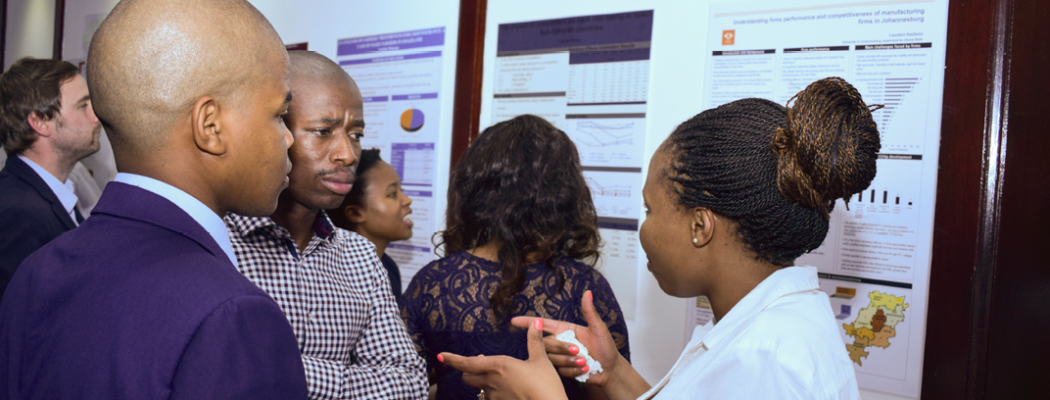SA-TIED Phase II launch: A panel discussion on the challenge of economic inclusion in South Africa and the need to implement structural reforms
On 5 May 2022 join us as we launch Phase II of the SA-TIED programme with a panel discussion on the challenge of economic inclusion in South Africa and the need to implement structural reforms.
Register to join in person, or tune in to the livestream below
If you have troubles watching this video, try to disable your AdBlock plugin and reload the page.
South Africa’s economic challenges are well documented. While much progress has been made since the advent of democracy in 1994, unemployment and inequality have remained stubbornly high, and poverty is still pervasive. The economic stagnation of the past decade, coupled with the impact of the COVID-19 pandemic, mean that much of this progress could be derailed. The unemployment rate has recently reached new record highs and inequality remains very high. Low economic growth entrenches poverty and inequality, while high income inequality aggravates social fragmentation and poses a risk to long-run economic growth.
A series of structural reforms are being envisaged by the South Africa government to enable faster, more inclusive growth by improving access to reliable electricity, water, and sanitation services, enabling cost-effective digital services, promoting the green economy, and supporting industries with high employment potential, such as tourism and agriculture.
Some key questions to be addressed during the event, focusing on closing the poverty gap and addressing inequality, include:
- How can these structural reforms lead to more inclusive growth?
- Do we have the capacity to implement structural reforms such as the Economic Recovery and Reconstruction Plan (ERRP) as well as other policy priorities?
- How do we promote inclusive growth in the light of the impact of COVID-19?
- Following the event, guests are invited to a lunch reception.
Programme
9:30–10:00 Registration and coffee
10:00–10:15 Opening address by Enoch Godongwana, the Minister of Finance of South Africa, and Antony Phillipson, High Commissioner of the UK to South Africa
10:15–11:00 Panel discussion
Panelists:
- Rudi Dicks, Head of the Project Management Office, Presidency
- Pearl Pillay, Managing Director of Youth Lab and National Planning Commissioner, NYDA
- Murray Leibbrandt, NRF Chair in Poverty and Inequality Research and Director of the Southern Africa Labour and Development Research Unit at the University of Cape Town
- Nomvuyo Guma, Chief Director Microeconomics, National Treasury
- Vusi Gumede, Dean of the Faculty of Economics, Development and Business Sciences at the University of Mpumalanga
Moderator: Mashudu Masutha
11:00–11:45 Q&A with audience
11:45–12:00 Brief introduction to SA-TIED Phase II and closing remarks by Kunal Sen, Director of UNU-WIDER
12:00–13:30 Lunch reception
Please register for the SA-TIED event here.
The Southern Africa – Towards Inclusive Economic Development (SA-TIED) programme supports policy-making for inclusive growth and economic transformation in the Southern Africa region. This is achieved through original research conceived and produced in collaboration between the National Treasury of South Africa, the United Nations University World Institute for Development Economics Research (UNU-WIDER), and many other governmental and research organizations in South Africa and its sub-region. A key aspect of the programme is to encourage networking and discussion amongst those involved in policy processes across the participating organizations and civil society to bridge the gap between research and policy-making.
The first phase of the SA-TIED programme was implemented from 1 November 2017 to 31 March 2022. It led to major research contributions to the policy environment, as outlined in the summary report ‘A platform for evidence-based policy formulation: Lessons from SA-TIED’. SA-TIED Phase II runs from 1 April 2022 to 30 June 2025 and will build on these successes while further increasing its relevance to the policy-making environment in South Africa.
The thematic focus of SA-TIED Phase II will include some of the topics that were core in Phase I, while bringing in new areas that have emerged as key policy priorities in South Africa: (1) Enterprise development for job creation and growth, (2) Public revenue mobilization for inclusive development, (3) Structural transformation, labour markets, and inequality dynamics, (4) Macro-fiscal analysis and policy modelling, (5) Food, energy, and water in a context of climate change, and (6) Reform implementation.





